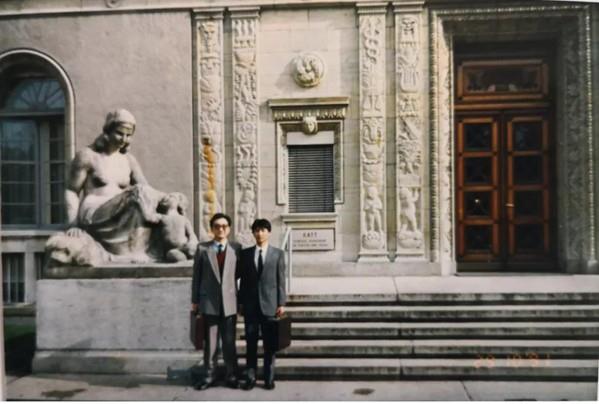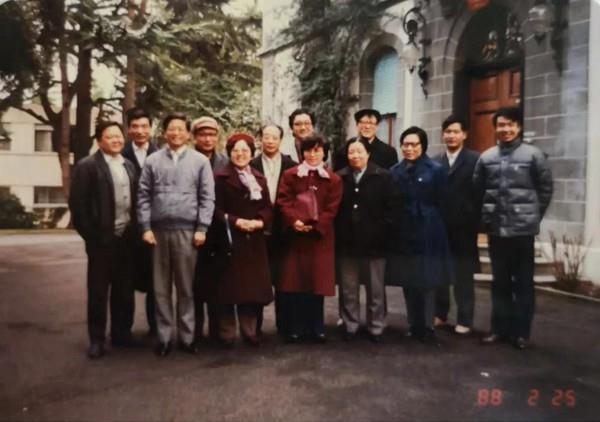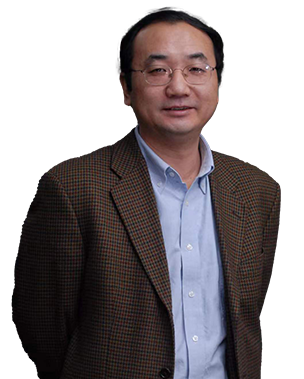A Legal Person and the Past of WTO (4)
Editor's Note: During the fifteen years from 1986 to 2001, after arduous negotiations, China joined the World Trade Organization. Wang Lei, a lawyer from Gaopeng Law Firm, participated fully and deeply in the negotiation from the beginning, and was a legal person in the negotiation delegation. This year marks the 20th anniversary of China's accession to the WTO. Gao Pengsuo specially invited Lawyer Wang to write a series of articles to recall the details of those eventful years. We also take this opportunity to pay tribute to those who stood at the forefront of reform and opening up and worked hard in the negotiations for the national interests.
After setting up the working group, the first thing to do was to hold a meeting to review the Memorandum on the Foreign Trade System submitted by China. This memorandum is China's self-introduction to members of the General Agreement. The main contents include China's economic and trade system, tariff and tax systems, enterprise systems, import and export licenses, commodity inspection systems, foreign exchange management, and special economic zones. The memo is about twenty pages in A4 size, but it takes two years to complete the process from drafting to finalizing. During the drafting process, officials of the General Agreement Secretariat were repeatedly requested to provide advice. As long as they understand first, it will be easy for the contracting parties to understand.
However, as soon as the roll was uncoiled, it got stuck.
The Director of the Legal Department was Mr. Rosler, a German at the time. Luo was tall and burly, with a broad and straight chest, cold and stern, unsmiling. He walked with meteoric strides, nearly three feet in one step. "What does commodity economy mean?" When discussing China's planned commodity economy system, Chief Luo looked confused. This is in a planned economy, where commodity exchange is practiced, the law of value is emphasized, and the economy is invigorated. However, Luo is still puzzled by these explanations. He knew that there were market economy systems and planned economy systems in the world, but he had never heard of a commodity economy before and didn't know what he meant. He further explained that "commodity" in English refers to primary products such as mineral products and agricultural products, such as crude oil, iron ore, and wheat. In international trade, "commodity" refers to primary traded goods relative to manufactured goods. "Is China's commodity economy an economy in which crude oil is exchanged for wheat as a primary product?"
This is really a dialogue from two worlds, chicken with duck.
Looking at this Arnold like, angular, Germanic face, I suddenly remembered that he was German, so I tried to ask him, "Have you read Marx's Capital?" He replied. "Marx once said that commodities are an element that constitutes the market." Following this path, the other party vaguely swung his square chin up and down.
Fortunately, we have a common ancestor with Director Luo.
"Can you consider the commodity economy as a market economy? If so, why not rewrite it into a market economy in the memorandum?" This question left us confused. At that time, China was still arguing back and forth about how many talents to hire as exploitation for a self-employed person. Who dares to say that China is engaged in a market economy? Moreover, Marx seemed to criticize the market economy. "China implements a planned commodity economy system, which was established by the legislature (the Seventh National People's Congress) and cannot be changed." We firmly replied to the other party, explaining that the Chinese term "commodity" refers to all goods used for trading in the market.
Roche's confused questioning later ran through the entire process of reviewing China's trade memorandum. It is no wonder that the General Agreement itself does not set norms for a planned economy. Secretariat officials and the vast majority of party representatives do not have their own experience under the planned economy system. It is difficult to understand a system that has never experienced it personally, and coupled with the "commodity economy" under this system, it is even more difficult.
The working group will submit a large number of questions raised by members to the Chinese side for written replies, followed by on-site oral questions and answers. It may be unprecedented for officials from relevant Chinese ministries and commissions to orally answer questions from representatives of various countries on various aspects of the economic system in international institutions. At the request of the Chinese side, the working group informed the parties in writing of any questions they would like to ask orally. With these questions in mind, personnel from relevant ministries and commissions were organized to conduct a question and answer exercise in the suburbs of Beijing. It was felt afterwards that the effectiveness of such exercises was very limited.
In February 1988, Geneva was still in the midst of cold mountains and cold waters. China's first oral Q&A began. The Chinese delegation, led by the first negotiator, Vice Minister Shen Juoren of the Ministry of Foreign Trade and Economic Cooperation, took the mission's bus to the General Agreement Building on the same day. Chinese representatives from relevant ministries and commissions of the central government came to the door of this "rich people's club" for the first time and stopped to take a closer look. Suddenly, a dozen oriental faces appeared, and representatives from other countries and Secretariat officials greeted each other with friendly glances and smiles. The General Agreement Building, originally the building of the International Labour Organization, was built at the beginning of the last century and stood on the edge of the Lake Geneva for nearly a century, solid and heavy. The entrance gate is over three meters high and is a thick wooden door that needs to be pushed hard with your shoulders, but the handle is electrically operated and opens automatically when you twist it. China has been pushing this heavy door for 15 years.

More than 30 years ago, I took a photo with my colleagues in front of the General Agreement Building. Behind me is the heavy entrance gate
Problems similar to Roche's did indeed appear in the meeting room of a working group with representatives from more than 50 member countries, one after another and one after another. Q: What is the system of a planned commodity economy? A: China implements a planned commodity economy system, and planning and market are inherently unified. Both planning and market regulation are used to develop and improve various markets, giving play to the role of market mechanisms, and ensuring the coordinated development of the national economy. Q: What is the difference between a directive plan and a guiding plan? Answer: The former has legal binding force, while the latter does not. After all, since there are legally binding laws and the mandatory plan cannot be completed, what punishment measures are there and who will be punished? This question does not seem to be in preparation for the exercise. Answer: Both plans are means of completing economic work. Q: Under the factory director responsibility system under the leadership of the Party committee, who is responsible for the secretary or factory director? Q: Some domestic businessmen have reported that the same goods are exported to China. Why are the tax rates different between Dalian Customs and Zhanjiang Customs? Q: Why are imported goods and domestic goods inspected by two different inspection agencies according to different standards? Q: Why is it necessary to conduct import and export transactions with designated professional foreign trade companies instead of directly conducting foreign trade with factories and product users?
Ask. Throughout the year 1988, there were thousands of questions and thousands of answers, circulating over and over again, going round and round again. Finally, the main contracting parties believe that although China is not a purely planned economy, its market mechanism is underdeveloped, and there is a considerable distance from the General Agreement based on market mechanism; In terms of exports, the State directly subsidizes foreign trade enterprises, which is prone to impact the international market. The contracting parties need China to accept a transitional selective safeguard clause that allows for special restrictions on Chinese products; In terms of imports, China's administrative intervention measures such as import approvals, quota controls, import licensing, and foreign exchange controls have limited the role of Chinese tariffs in regulating import and export trade, which is somewhat different from the General Agreement.
The problem arises. The so-called selective safeguard clause allows contracting parties to specifically raise tariffs or set import quantities on products imported from China, while the rules of the General Agreement are equal and no specific restrictions may be imposed on a particular country. Why should selective safeguard clauses be imposed on China, which violate the rules of the General Agreement? The so-called limited role of tariffs in imports and exports means that China's "tariff concessions" are insufficient to open the Chinese market to contracting parties, requiring China to eliminate the practice of hierarchical approval and quantitative quotas for imports, which involves reducing or even canceling the responsibilities of many ministries and commissions in charge of import approval documents. It seems that further institutional reform is inevitable. This is probably the first time that the Chinese system has been required to reform internationally.
This is like the water of the Geneva Lake beside the General Agreement Building, where the wind surges and the water banks fight against each other, with ups and downs.

The Chinese delegation composed of relevant ministries and commissions took photos in the Chinese Embassy in Geneva during the Q&A session of the working group
To be continued
(This article is translated by software translator for reference only.)
Related recommendations
- Tax lawyers review the draft of the revised Tax Collection and Administration Law for soliciting opinions
- New Measures for Punishing "Dishonesty" by the Supreme People's Court at the Two Sessions in 2025 (Part 3): "Height Limit" Single Release Mechanism
- New Measures for Punishing "Dishonesty" by the Supreme People's Court at the Two Sessions in 2025 (Part 2): Grace Period System
- Interpretation of the Management Measures for Compliance Audit of Personal Information Protection - Feeling the Rhythm and Rhythm of Regulatory Flow



